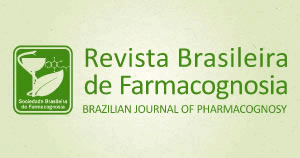Abstract
This study investigated the influence of different processing methods on the oral toxicity of Sophora alopecuroides L., Fabaceae, seeds in mice and on the contents of five known toxic-effective quinolizidine alkaloids from the ethanol extracts quantified by ultra-performance liquid chromatography coupled to tandem quadrupole mass spectrometry. It provides an evidence to elucidate the possible reasons why vinegar-processing and parching methods significantly decrease the acute oral toxicity induced by S. alopecuroides and why wine-processing method increases it instead (demonstrated by measurement of LD50 and histopathological analysis). The analytical performance for the determination of the five analytes was evaluated by linearity, stability, repeatability, precision and accuracy, and recovery test. The lowest limit of quantification was determined to be 5 ng/ml for each substance and the precision and accuracy at lowest limit of quantification were below 20%. Cytisine, the most toxic alkaloid among the five alkaloids, declined 11.26, 3.98, and 2.73 folds after being vinegar-processed and fried in a ceramic or iron pan, respectively and had a very close correlation with the toxicity of S. alopecuroides seeds (r = 0.8589). Other matrine-type alkaloids with lower toxicity including matrine, sophcarpine, and sophoridine decreased after being wine-processed and fried in a ceramic pan, but increased 4.44, 7.20, and 7.23 folds when being processed by vinegar. Oxymatrine declined in all groups. It, therefore, reveals that vinegar-processing method reduces the oral toxicity of S. alopecuroides mainly due to a sharp decrease of cytisine, thus improves its clinical safety.
Keywords:
Vinegar-processing; Acute oral toxicity; Quinolizidine alkaloids; Cytisine; Histopathological analysis




